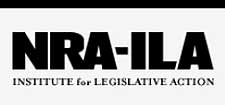-
Discrimination Against Firearm Industry: Sen. Ted Cruz intervened when QuickBooks abruptly terminated services for firearm businesses without warning, causing economic disruptions.
-
Influence of ESG Activism: Businesses are adopting Soro’s backed ESG activism and young executives, potentially sidelining evidence-based decision-making and harming small businesses.
-
Banks’ Role in Discrimination: Intuit blamed its policies on mandates from banks like JP Morgan and Bank of America. Calls are needed for broader legal protections against such practices.

Last week, the office of Sen. Ted Cruz (R-TX) announced a rare and welcomed shift in corporate policy to restore access to a popular brand of business software and payment processing that had previously discriminated against members of the firearm industry.
The move came after Cruz’s office had investigated complaints from constituents whose small businesses were disrupted when their access to the brand’s services was abruptly canceled. In each case, there was no warning, no opportunity to appeal the decision, and no recompense for the economic harms caused. Diligent work by Sen. Cruz and his staff traced the chain of decision-making through the brand’s own hierarchy and on to large national banks with whom the brand had partnered.
Ultimately, when confronted with its shockingly callous treatment of the constituents, the brand relented and agreed to change its policies.
Regular readers of this page are aware of a disturbing trend in the modern marketplace of businesses refusing to provide their services to law-abiding members of the firearms industry. These corporate policies are often the result of pressure campaigns from national gun control groups and sometimes even from government actors themselves, exemplified most notoriously by the Obama/Biden administration’s Operation Choke Point.
The Evil of “ESG” (For Environmental, Social, And Governance Investing)
Big businesses also futilely and stupidly submit to the shakedown known as “ESG” (for environmental, social, and governance investing), in which they adopt policies demanded by activists and institutional investors who claim they are holding the businesses accountable for being “good corporate citizens.” These activists, however, usually represent the vocal fringe of public opinion, and the policies they promote are almost always those actually rejected by the political process itself, in which lawmakers are accountable to the body politic.
In other cases, the decisions are driven by young, recently-educated executives – sometimes themselves ESG hires – who represent the modern trend in business education. This trend, like much of modern education generally, prizes the promotion of the far left’s propaganda and ideological agenda over sound and evidence-based policymaking.
The damage and disruption ideologically-based policies can cause small businesses struggling to compete in the modern economy is all too real.
In the case of Sen. Cruz’s constituents, one suddenly lost its payroll processing services without advanced warning, leaving the business scrambling to ensure its workers got paid. Another found it could no longer receive payments from customers because it had allegedly violated a policy that prohibited any gun sale that did not occur in a face-to-face transaction. That decision, in term, stemmed from the service provider not understanding how lawful interstate gun sales work (i.e., one federally licensed dealer ships the gun directly to another, from whom the customer receives it in a face-to-face transaction with all the usual formalities). However, the business had no recourse for correcting the service provider’s erroneous understanding.
This illustrates the insidious nature of ESG activism, as its ill-effects are often more consequential and more immediate than if the government itself had persecuted the affected business. And, unlike with government action, the affected business enjoys no due process or constitutional protection. Instead, it is subject to vaguely-worded, take-it-or-leave-it “user agreements” that cannot be negotiated and usually leave no appeal process for adverse decisions other than simply taking one’s business elsewhere. But suddenly losing a long-standing business relationship for a key function in the fast-moving world of modern commerce can often spell the demise of a small business that depended on the services for its day-to-day functioning.
Sen. Cruz’s intervention in the case in question concerned the QuickBooks suite of accounting software, which its publisher Intuit claims is the leading such product for small businesses.
Intuit executives acknowledged the actions against Cruz’s constituents and the “acceptable use policies” that discriminated against firearm businesses. But they blamed these policies, in turn, on mandates from associated banks, one of which was Bank of America and another was JP Morgan. JP Morgan, for its part, admitted it was the ultimate source of the Intuit policy. Bank of America, however, denied culpability. In any case, Intuit went on to revise its acceptable use policy to end the discriminatory practices. Notably, NRA-ILA has reported on discrimination against gun companies by large national banks, as well as the pressure those banks have themselves received to take these actions from anti-gun members of Congress.
Sen. Cruz and his staff are to be commended for their determined response to the harm caused to their constituents and for the beneficial outcome obtained for them and for the rest of the firearms industry.
But the time is long past when this problem can be solved with case-by-case interventions against the offending businesses. In the past, Congress successfully curtailed discrimination with broad civil rights legislation that protected persecuted groups against systemic exclusion from public accommodations and other programs in the private and public sphere. Those lawfully engaged in constitutionally protected activity, including firearm businesses conducting Second Amendment-protected commerce, should enjoy the same broad legal protection.
About NRA-ILA:
Established in 1975, the Institute for Legislative Action (ILA) is the “lobbying” arm of the National Rifle Association of America. ILA is responsible for preserving the right of all law-abiding individuals in the legislative, political, and legal arenas, to purchase, possess, and use firearms for legitimate purposes as guaranteed by the Second Amendment to the U.S. Constitution. Visit: www.nra.org







Go Ted and thank you. I see him defending the constitution and what it stands for more often than I do most the other critters on the hill.
He is also one of the main people fighting to get our border under control.
Seems rather ironic that big banking and credit card companies want to stop the firearms industry from using their services. Yet also want the marijuana industry to have the right to use them.
How anti Capitalist authoritarian of the cuban Cruz
Your comments have racked up more down votes on this site than anyone else , that should tell you something. Try CNN you might get a upvote there clown. Lefty your side has zero credibility due to the fact you don’t know the difference between a man or a women or a door knob and a fire alarm. Educate your comrades so they are not so stupid then you might be credible .